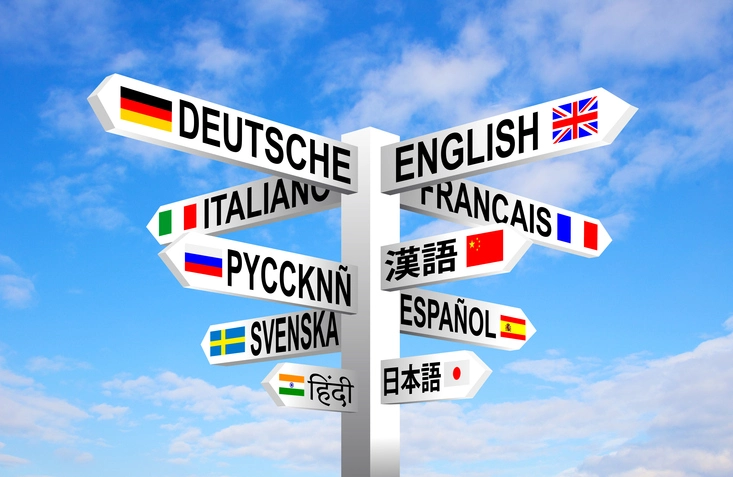
What Can You Do with a Languages Degree? Exploring Career Opportunities
A languages degree opens up a world of opportunities, offering versatility and a wealth of career paths. Whether you’re passionate about a particular language, culture, or literature, a degree in languages equips you with skills that are highly valued across many industries. From communication and translation to diplomacy and business, the possibilities are vast. Here’s a closer look at what you can do with a languages degree:
1. Translation and Interpretation
One of the most direct paths for languages graduates is a career in translation and interpretation. Translators convert written text from one language to another, while interpreters provide verbal translations in real-time. These roles are in demand across various fields, including legal, medical, technical, and literary. If you have a strong grasp of multiple languages, this could be an ideal career path, allowing you to work with international companies, government bodies, and non-profit organisations.
2. International Business and Marketing
In today’s global economy, businesses are always seeking to expand their reach into new markets. With a languages degree, you can work in international business, helping companies navigate cultural differences and communicate effectively across borders. Whether it’s in marketing, sales, or customer support, fluency in multiple languages makes you an asset to any international business looking to improve relationships with clients and customers worldwide.
3. Teaching
A degree in languages can also open doors in teaching, whether at the primary, secondary, or higher education levels. You could teach foreign languages in schools or become an ESL (English as a Second Language) instructor abroad. Teaching offers the opportunity to share your love of languages with others, and it’s a career that’s in high demand, especially as more schools and institutions adopt international curricula.
4. Diplomacy and International Relations
For those interested in politics or global diplomacy, a languages degree can be a gateway to a career in international relations. Working for government agencies, international organisations like the United Nations, or diplomatic services, a background in languages allows you to engage with various countries and cultures, contributing to policy decisions and negotiations. Strong communication skills in multiple languages can make you a valuable asset in managing international relations.
5. Travel and Tourism
A career in travel and tourism is another exciting option for languages graduates. Being fluent in several languages can provide opportunities to work as a tour guide, travel consultant, or even in international hotels and resorts. You could help travellers navigate unfamiliar destinations or work with international clients to plan their trips. If you love to explore new places and cultures, this field offers the perfect blend of passion and profession.
6. Writing, Editing, and Journalism
If you have a flair for writing, a languages degree can lead to opportunities in journalism, editing, or publishing. You could write for international publications, edit translated works, or become a journalist reporting on global issues. Your knowledge of languages gives you the ability to work in multilingual media and bring a unique perspective to your work, whether you’re writing stories, creating content, or editing translations.
7. Cultural Liaison and Consultancy
Many organisations, particularly those involved in cultural exchange programs or international development, require cultural liaisons to help bridge cultural gaps and foster mutual understanding. With a languages degree, you could work as a cultural consultant for businesses, government entities, or non-profits. This role could involve advising companies on how to engage with different cultures, plan international events, or implement cross-cultural training.
8. Technology and Localization
In today’s digital age, there is a growing demand for professionals who can manage localization—the process of adapting digital content, software, websites, and apps for different languages and cultures. As a languages graduate, you could work in technology, helping businesses localise their products and services for global markets. This role typically combines language skills with an understanding of technology and can be a highly lucrative career option.
9. Social Services and Non-Profits
Many social services, particularly in multicultural societies, require individuals who can communicate with people from diverse linguistic backgrounds. A languages degree can be a great asset if you’re looking to work in social services, non-profit organisations, or community outreach programs. Helping underserved communities, working with refugees, or providing language support services are all ways in which you can use your language skills to make a positive impact.
10. Freelance Opportunities
For those who prefer to be their own boss, a languages degree can also open the door to freelance work. As a freelancer, you could offer services such as translation, content writing, teaching, or editing. Freelancing offers the flexibility to work from anywhere in the world, and with the right marketing, you could build a thriving business, working with clients across various sectors and industries.
Final Thoughts
A languages degree is incredibly versatile, providing you with a wide range of career opportunities that transcend borders and industries. Whether you choose to work in translation, teaching, business, or international relations, the ability to communicate in multiple languages is a highly sought-after skill that opens doors to a variety of fulfilling careers. With the world becoming increasingly interconnected, proficiency in languages is a valuable asset that can help you make meaningful contributions on both a local and global scale.